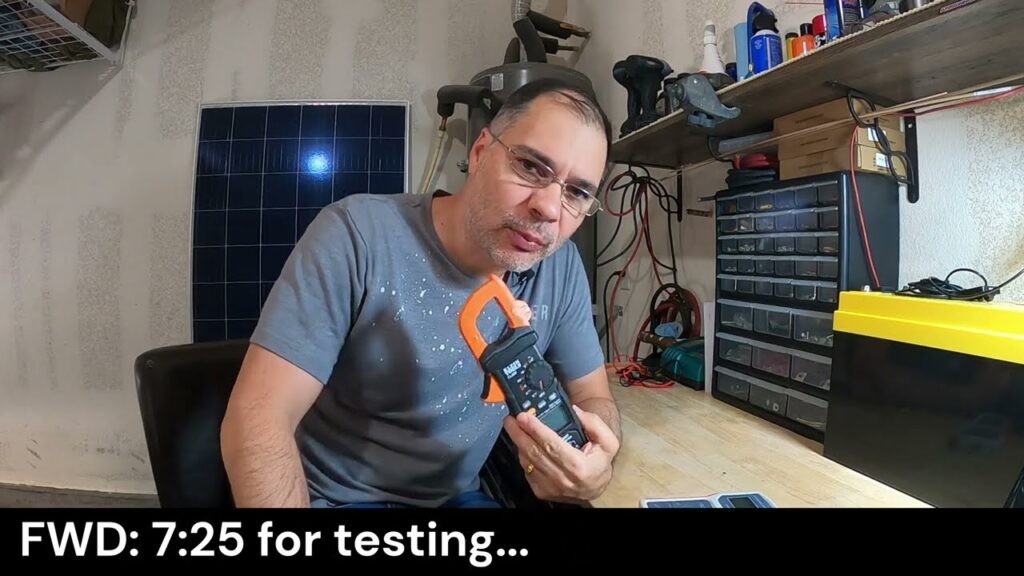Are you thinking of switching to solar energy but don’t know where to start? Look no further! In this comprehensive guide, we will explore everything you need to know about finding the best solar panels for sale near you. From understanding how solar panels work to comparing different options and providing expert advice, this article has got you covered. So let’s dive in and discover the world of solar panels.
What are Solar Panels and How Do They Work?
Before we delve into finding the best solar panels for sale, it’s essential to understand what they are and how they work. Solar panels, also known as photovoltaic (PV) modules, are devices that convert sunlight into electricity. These panels consist of many solar cells made of silicon, which absorb sunlight and generate direct current (DC) electricity.
There are two main types of solar panels: monocrystalline and polycrystalline. Monocrystalline panels are made from a single silicon crystal and have a black or dark blue color. On the other hand, polycrystalline panels are made from multiple silicon crystals and have a bluish tint. Both types are efficient and reliable, so it ultimately comes down to personal preference.
Now, let’s take a closer look at how these panels work. When sunlight hits the solar cells, it knocks electrons loose from their atoms, generating DC electricity. This electricity then flows through an inverter, which converts it into alternating current (AC) electricity, making it suitable for household use. The AC power is then sent to your home’s electrical panel, where it can be used to power your appliances and electronics.
Understanding Net Metering and Financing Options

Before you start exploring the best solar panels for sale near you, it’s crucial to understand net metering and financing options. Net metering is a billing system that allows you to receive credits for the excess energy your solar panels produce. For example, if you generate more electricity than you use during the day, the excess energy is sent back to the grid, and you will receive credits on your electric bill.
Financing options for solar panels include cash purchases, loans, and leases. Cash purchases allow you to own the panels outright, while loans and leases allow you to pay for them over time. Researching and understanding these options will help you make an informed decision based on your budget and needs.
How to Use Net Metering and Financing Options
To utilize net metering, you need to have a bi-directional meter installed by your utility company. This meter tracks the amount of energy your solar panels produce and how much you use from the grid. At the end of each month, your net energy consumption is calculated, and you are either credited or charged accordingly.
When it comes to financing options, it’s essential to consider your budget and the long-term benefits. While a cash purchase may seem daunting, it’s a one-time investment that can save you money in the long run. On the other hand, loans and leases provide flexibility but may come with additional fees and interest. It’s advisable to consult a solar panel expert to determine the best financing option for you.
Examples of Using Net Metering and Financing Options
Let’s say you installed solar panels on your roof and generated more energy than you used in a month. With net metering, you would receive credits on your electric bill, which can offset future bills where you may use more energy than you produce. This way, you can save money on your electricity expenses.
If you opt for a loan to finance your solar panels, you can choose a payment plan that suits your budget. For example, you can make monthly payments over several years until the loan is paid off. Similarly, with a lease, you can pay a fixed monthly amount for a set period, typically 20-25 years. This allows you to enjoy the benefits of solar energy without a large upfront cost.
Comparing Net Metering and Financing Options
When comparing net metering and financing options, it’s essential to consider your current energy usage and potential savings. Net metering is ideal for those who use a significant portion of their energy during daylight hours, as they can take advantage of the excess energy produced by their solar panels. On the other hand, financing options are suitable for those who may not have the funds for a cash purchase but want to switch to solar energy.
It’s also crucial to compare the terms and conditions of different financing options. Some loans may have higher interest rates than others, while some leases may come with additional maintenance costs. By carefully weighing these factors, you can make an informed decision that best suits your needs and budget.
Exploring Different Types of Solar Panels

Now that we have a better understanding of how solar panels work and the available financing options let’s explore the different types of solar panels available in the market. Each type has its unique features and benefits, so it’s essential to consider them when searching for the best solar panels for sale near you.
Monocrystalline Panels
Monocrystalline panels are made from high-quality silicon and have a high efficiency rate. They also have a sleek black design, making them aesthetically pleasing. These panels are known for their durability and can last up to 25 years or more. However, they tend to be more expensive than other types of solar panels.
Polycrystalline Panels
Polycrystalline panels are made from lower-grade silicon, making them less efficient than monocrystalline panels. They also have a bluish hue, which some people may not find appealing. However, they are more cost-effective and have a lifespan of 25 years or more.
Thin-Film Panels
Thin-film panels are made from layers of photovoltaic materials, such as amorphous silicon or cadmium telluride. They are less efficient than crystalline panels but have a lower cost. These panels are flexible and can be installed on curved surfaces, making them a popular choice for commercial buildings.
How to Use Different Types of Solar Panels
When deciding which type of solar panel to use, consider factors like efficiency, durability, and cost. If you have limited space for installation, thin-film panels may be a suitable option. If you prioritize efficiency and don’t mind spending more, monocrystalline panels may be the right choice.
It’s also advisable to consult with a solar panel expert who can assess your energy needs and recommend the best type of panel for your home or business. They can also provide guidance on installation and maintenance, ensuring that your solar panels operate at their maximum potential.
Examples of Using Different Types of Solar Panels
If you have a large roof space and want to maximize energy production, monocrystalline panels may be a suitable choice. As they are highly efficient, you can generate more electricity in a smaller area. On the other hand, if you have a smaller roof or prefer a cost-effective option, polycrystalline panels may be a better fit.
Thin-film panels are ideal for those who have unconventional buildings or limited space for installation. For example, if your roof has a unique shape or is partially shaded, thin-film panels can be installed on these areas to maximize energy production.
Comparing Different Types of Solar Panels
When comparing different types of solar panels, it’s essential to consider your specific needs and budget. Monocrystalline panels may be the most efficient, but they come at a higher cost. If you have a limited budget, polycrystalline panels may be the better option.
Thin-film panels have the lowest efficiency rate but are more flexible and can be installed in unconventional areas. It’s also essential to consider the climate in your area and the amount of sunlight you receive. This can affect the performance of different types of solar panels and should be taken into consideration when making a decision.
Tips for Choosing the Best Solar Panel Provider
Now that you have an understanding of how solar panels work and the different types available, it’s time to choose a reputable provider. Here are some tips to help you find the best solar panel provider near you:
- Do your research: Take the time to research different providers and read reviews from previous customers. This will give you an idea of their reputation and the quality of their services.
- Look for certifications: Make sure the provider is certified by reputable organizations such as the North American Board of Certified Energy Practitioners (NABCEP). This ensures that they have the necessary knowledge and expertise to install high-quality solar panels.
- Compare quotes: Get quotes from multiple providers and compare them. This will help you get the best deal and avoid any hidden costs.
- Consider warranties: Check the warranty offered by the provider. A good warranty should cover the panels, inverters, and any other equipment for at least 20 years.
- Ask about installation and maintenance: Inquire about the installation process and if the provider offers maintenance services. Proper installation and maintenance are crucial for the longevity and optimal performance of your solar panels.
By following these tips, you can ensure that you choose a reliable and trustworthy solar panel provider who can help you achieve your renewable energy goals.
Frequently Asked Questions (FAQs)
1. How much do solar panels cost?
The cost of solar panels varies depending on factors such as size, type, and location. On average, a residential solar panel system can cost anywhere between $15,000 to $25,000 before incentives. However, the long-term savings on your electricity bill can make this investment worthwhile.
2. How long do solar panels last?
Most solar panels have a lifespan of 25 years or more. However, their efficiency may decrease over time, resulting in a lower energy output. Regular maintenance and cleaning can help prolong the life of your solar panels.
3. Do I need batteries for my solar panels?
Batteries are not necessary for most residential solar panel systems. Net metering allows you to store excess energy on the grid, eliminating the need for batteries. However, if you live in an area with frequent power outages, having a battery backup may be beneficial.
4. Can I install solar panels myself?
It’s not recommended to install solar panels yourself unless you have the necessary knowledge and experience. Solar panel installation requires electrical and structural expertise, so it’s best to leave it to the professionals.
5. Will my solar panels work during cloudy days?
Yes, solar panels can still generate electricity on cloudy days. While they may not produce as much energy as on a sunny day, they can still contribute to your overall energy production.
Conclusion
Switching to solar energy is a significant step towards a greener and more sustainable future. By understanding how solar panels work, exploring different types available, and choosing a reputable provider, you can make an informed decision and reap the benefits of renewable energy. With net metering and financing options, solar panels have become a viable option for many households and businesses. So why wait? Start exploring the best solar panels for sale near you today and make the switch to clean, renewable energy.

